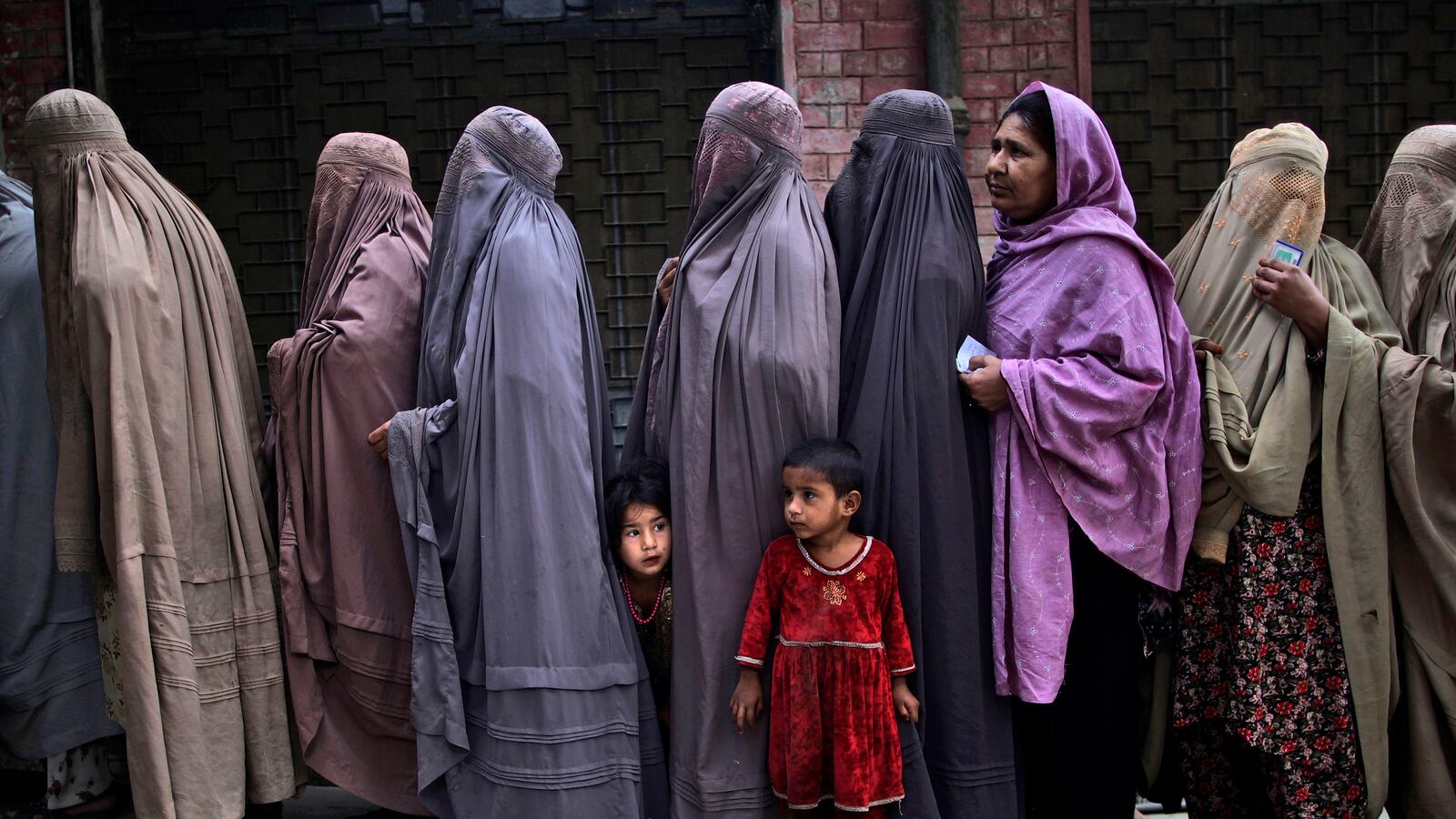Millions of Pakistanis voted in the country’s general elections on Saturday, its first democratic transition of power between two civilian governments. But while the 2013 elections are being seen as a herald of change and reform in Pakistan, they could cause further problems for Pak-U.S. relations as NATO forces prepare to withdraw from Afghanistan in 2014.

Washington relies on Islamabad to fight militants in the tribal areas between Afghanistan and Pakistan. This is unlikely to change. As the 2014 withdrawal deadline nears, Washington, Kabul and Islamabad will need to work together to ensure the Taliban don't gain ascendance again.
The U.S. has not backed any candidates in the 2013 elections, restricting its reaction to commending the “historic elections” in Pakistan. This is probably for the best. The controversial U.S. drone program, which considers any military-age man a militant, often stages attacks within Pakistan’s tribal areas to target Taliban who cross the porous border after staging attacks in Afghanistan. The civilian casualties in these attacks—by some estimates as high as 155 in 2011 alone—have not helped America’s perception within Pakistan. A Pew poll released last week shows that 64 percent of Pakistanis view America as an “enemy state,” with 66 percent seeing the U.S. withdrawal from Afghanistan as a “good thing.” Unsurprisingly, only 8 percent of the respondents see U.S. aid as a positive development—a fact that the two leading parties in this year’s elections are hoping to capitalize on.
Nawaz Sharif, a former twice-elected prime minister and the chief of the Pakistan Muslim League-Nawaz, has made it a point to highlight his resistance to U.S. pressure during his last tenure. In 1998, while Sharif was prime minister, Pakistan tested nuclear weapons in response to testing by neighboring India. The U.S. promptly imposed sanctions on both countries, halting military sales, private lending, and some credits and guarantees. Per Sharif, Pakistan managed to survive without U.S. aid at the time and can do so again.

While not offering any concrete solutions, he told journalists in Lahore that his government would not tolerate drone attacks. “Drone attacks are against the national sovereignty and a challenge for the country’s autonomy and independence. Therefore, we won’t tolerate these attacks in our territorial jurisdictions,” he thundered while presenting his party’s election manifesto, which attributes the rise of militancy in Pakistan to the U.S. invasion of Afghanistan in 2001. The saving grace is that Sharif is emerging from several years in political exile. Looking to prove himself as a more mature, pragmatic leader, analysts predict Sharif would opt for diplomacy over rash declarations. He has also been actively campaigning on Pakistan’s economy—an issue that might require U.S. support to secure another IMF bailout. Not so with his closest rival, cricketer-turned-politician Imran Khan.
Prone to emotional outbursts, Khan has told supporters of his Pakistan Tehreek-e-Insaf (Movement for Justice) that he will order the Pakistan Air Force to shoot down U.S. drones if he is elected. Tapped as the dark horse candidate of the 2013 general elections, Khan has promised he will break off all “unfair” ties with the U.S. “If we are voted to power, there would be no drone attacks in Pakistan. We won’t accept dictation from the U.S. The PTI government would formulate an independent foreign policy,” he told supporters in Pakistan’s northwest earlier this month. In the same speech, he blamed “America’s slaves”—a reference to the Pakistan People's Party (PPP) and PML-N—for circulating propaganda against him through campaign ads.
The best bet for the U.S.—and also the long shot—is if the PPP returns to power. While ties between the PPP-led government and Washington have been strained over the course of the past five years, the party has campaigned on a progressive platform and has tacitly permitted the U.S. to continue drone attacks, as per a leaked memo from WikiLeaks. The PPP is also unlikely to damage the work it has done in the past two years to restore ties with the U.S. It has established economic arrangements that would also be in jeopardy if the Pak-U.S. relationship deteriorated.
Regardless of which party secures the most seats in Parliament, it is unlikely they will be able to form government without a coalition. Both Sharif and Khan are expected to form coalitions with right-wing, Islamist parties that are sympathetic to the Taliban. The PPP will likely opt for allying with the parties that formed the outgoing government—who are more likely to seek positive ties with the U.S.
Of course, the 2013 elections have to conclude successfully first. Less than four hours after polls opened, there were reports of mismanagement, polling stations turning people away, polling officials casting votes themselves, and rigging allegations from multiple constituencies. Several parties have announced they will not accept results from Karachi, the country’s largest city. Pakistan’s first democratic transition from one elected government to another has just started—there’s still a long way to go.






